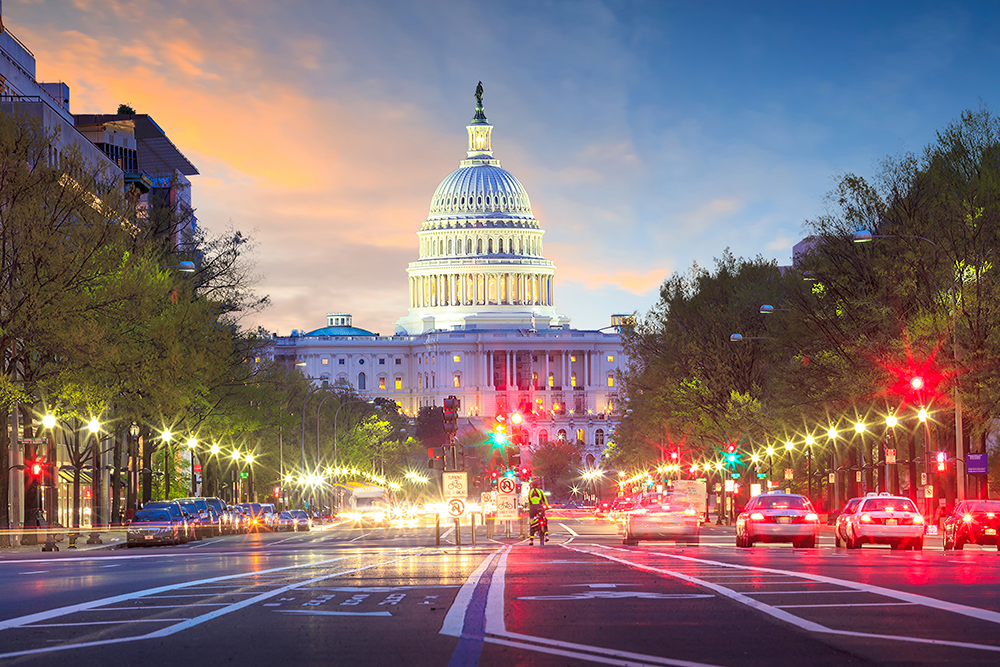The D.C. Board of Elections voted unanimously on Aug. 2 to send Initiative 83 to the Nov. 5 ballot to allow voters to decide on whether to create a semi-open primary system allowing voters who are unaffiliated with a political party to vote in a party primary election and establish ranked-choice voting for elections in Washington, D.C., beginning in 2026.
Washington, D.C. currently has a closed primary system and uses a plurality voting system for general elections.
In Washington, D.C., the Board of Elections is responsible for overseeing the ballot initiative process. After the D.C. Board of Elections approves a petition for a ballot initiative, proponents have 180 days to gather a number of signatures equal to at least 5% of the voters registered citywide (22,538 signatures). Signatures from 5% of registered voters in five of eight city wards are required to meet the city’s distribution requirement. Once signatures are filed with the Board of Elections, staff have 30 days to count and review the signatures.
Yes on 83 is leading the campaign in support of the initiative. They filed the initiative text on June 16, 2023, and submitted over 40,000 signatures on July 1, 2024.
Lisa D. T. Rice, a member of the campaign, said, “We would be rewarded with politicians who must work hard for our support. I strongly believe the combination of open primaries and ranked choice voting gives candidates and elected officials more independence and freedom to be true to their values and accountable to their constituents.”
The Democratic Party of Washington, D.C. opposes the initiative. The party said, “We acknowledge that RCV may be a suitable option for certain jurisdictions, however, when considering the District’s specific circumstances, we have identified significant concerns that prevent us from endorsing this approach. [The] fundamental issue we identified is that District wards are not equal in terms of voter turnout. Implementing RCV would not adequately address this disparity and could potentially undermine the democratic principles we strive to uphold.”
As of June 2024, RCV is used in three states—Alaska, Maine, and Hawaii—and 14 states contain localities that either use or are scheduled to begin using RCV in municipal elections.
Statewide measures proposing the adoption of RCV will be on the ballot in Idaho, Nevada, and Oregon on Nov. 5. Alaska voters will decide on an initiative to repeal the use of top-four RCV adopted in 2020 this November, and Missouri voters will decide on a legislative referral to prohibit RCV in the state constitution. As of June 2024, 10 states—Alabama, Florida, Idaho, Kentucky, Louisiana, Mississippi, Montana, Oklahoma, South Dakota, and Tennessee—have enacted legislation banning the use of RCV statewide. The prohibitions were enacted via state statute. Missouri would be the first RCV prohibition enacted via state constitutional amendment.
Additional reading:


